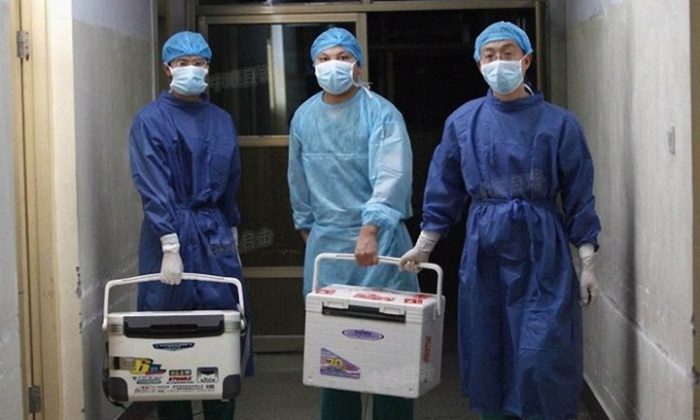
At the sound of gunshots, prisoners fell lifeless to the ground. Their bodies, still warm, were carried to a nearby white van where two white-clad doctors awaited. Behind closed doors, they were cut open, the organs carved out for sale on the transplant market.
The grisly scene, which sounds more like the plot of a horror movie, took place in China more than 20 years ago at the direction of state authorities. It was witnessed by Bob (pseudonym), then a police officer who provided security at the execution sites where death-row prisoners were executed.
“The harvesting of death-row prisoners’ organs was an open secret,” Bob, a former public security officer from central China’s Zhengzhou City who is now based in the United States, told The Epoch Times in an interview.
Bob described being an unwitting participant in an “industrialized” supply chain that converted living humans into products for sale in the organ trade. The players in this macabre industry include the judicial system, police, prisons, doctors, and the Chinese Communist Party (CCP) officials who issue the directive.
The former officer used a pseudonym in sharing his experience to protect his safety. The Epoch Times has verified his police ID and other personal information.
His account from the mid-1990s sheds light on one stage in the disturbing evolution of the CCP’s long-running practice of harvesting organs from non-consenting donors. While Bob witnessed organ extraction from prisoners who were already dead, in the following years the regime would go on to implement—and deploy on a mass scale—a practice far more sinister: harvesting organs from live prisoners of conscience, particularly Falun Gong practitioners.
The Execution
Bob joined the police force in 1996 and worked as a civilian police officer. From time to time, he assisted in maintaining order at a court where executions are confirmed and various execution sites in the city. Later, in 1999, as a result of an online post critical of the authorities, Bob himself was put in detention for more than a year. Inside, he was able to observe the handling of death-row prisoners,, and thus piece together the process from conviction to execution to organ harvesting.
After being sentenced to death, an inmate would be slapped in hand and ankle cuffs, the latter weighing up to 33 pounds to prevent a possible escape. One or two other prisoners would keep them on watch at all times. A blood test—a step to identify possible donors—and a check up on their mental and physical health would also run during this time at a dedicated medical room in the detention center.
“As far as I know, no one told the death-row prisoners their organs would be extracted,” Bob said.
Executions typically occurred ahead of major holidays, he said.
Death-row prisoners would have to attend a public hearing at a higher court, where a judge would confirm or overturn the death sentence assigned by the original court.
Those destined for execution—ranging from a handful to more than a dozen each time—were then marched out of the courthouse to a procession of 20 to 30 vehicles waiting outside, according to Bob. The convoy also transferred local officials assigned to witness the executions. They included the vice director from the local public security bureau, the judge, and other personnel who handled the cases.
All the cars had red cloth or paper taped over the windows and carried a numerical marking.
The prisoners determined to be suitable to have their organs extracted (as a result of the tests) would get injected with a drug said to relieve their pain. Its actual goal, though, was to prevent blood to coagulate after brain death and damage the organs, Bob said.
Those slated for organ harvesting were typically young, healthy men, usually in their 20s and 30s without a history of major illness, according to Bob.
At the execution site, prisoners were arranged in a line to be shot in the back of the head.
The closest convict would stand roughly three to five meters (3.3 to 5.5 yards) away from Bob.
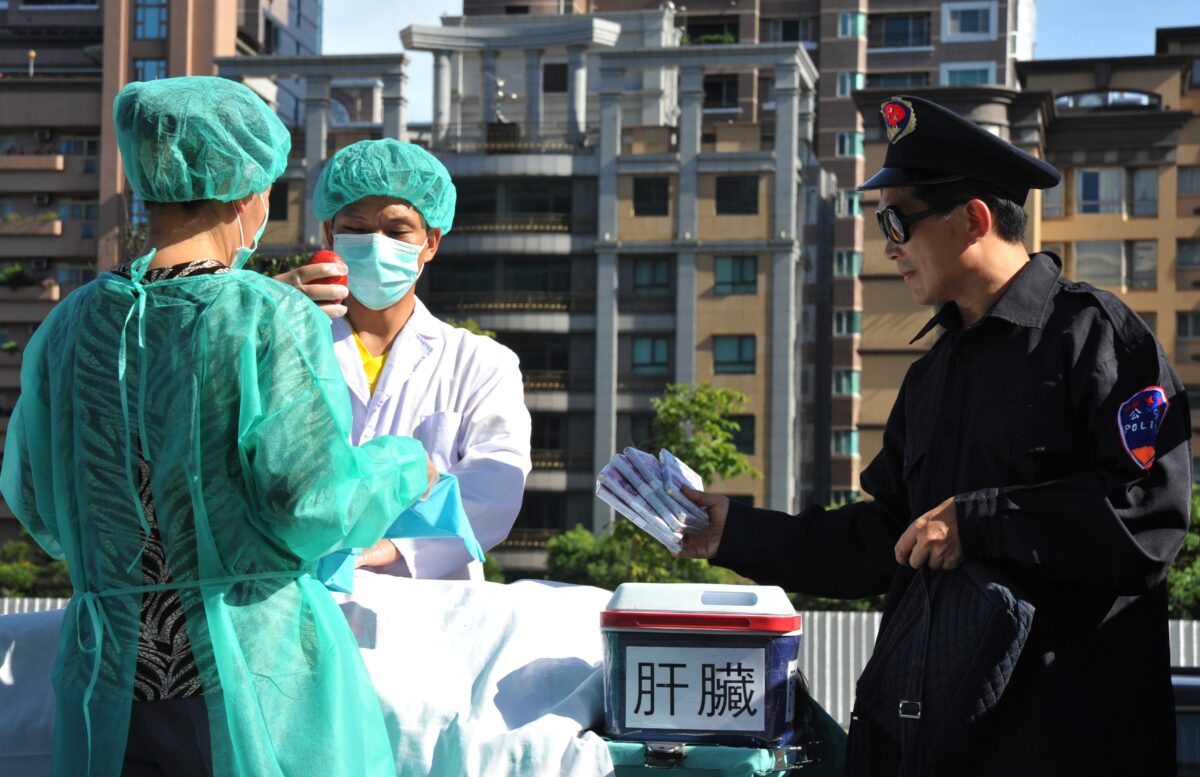
The White Van
After the shootings, an on-site medical examiner would check the bodies to confirm death. After this, a black plastic bag would be used to cover the prisoners’ heads. The bodies slated for organ extraction were then rushed to a white van waiting nearby. The van’s rear door was usually kept shut, and its window curtains were pulled down to keep out prying eyes.
Bob once caught a glimpse inside when the rear door chanced to be open. He saw an operating bed and two doctors donning a white gown, masks, and gloves. Plastic wrapping covered the ground in case of blood spills. The doctors swiftly closed the doors after realizing someone was watching.
No one but the doctors would know what happened afterward. When the bodies came out, they were in a black cadaver bag and sent directly for cremation.
The dead convicts were lumped together and burned in one kiln. As a result, it was impossible to distinguish which ashes belonged to who, Bob said. “They simply grabbed some from the heap, and gave it to each family.”
The families were none the wiser.
“The great majority of these death row prisoners’ families would have no idea their relative’s organs were extracted when they collected the ashes,” Bob said.
With rare exceptions, those inmates had no chance to see or talk with their relatives during their last moments. Nor could the family see the bodies after their loved ones’ death.
“All the family got was a box of ashes.”
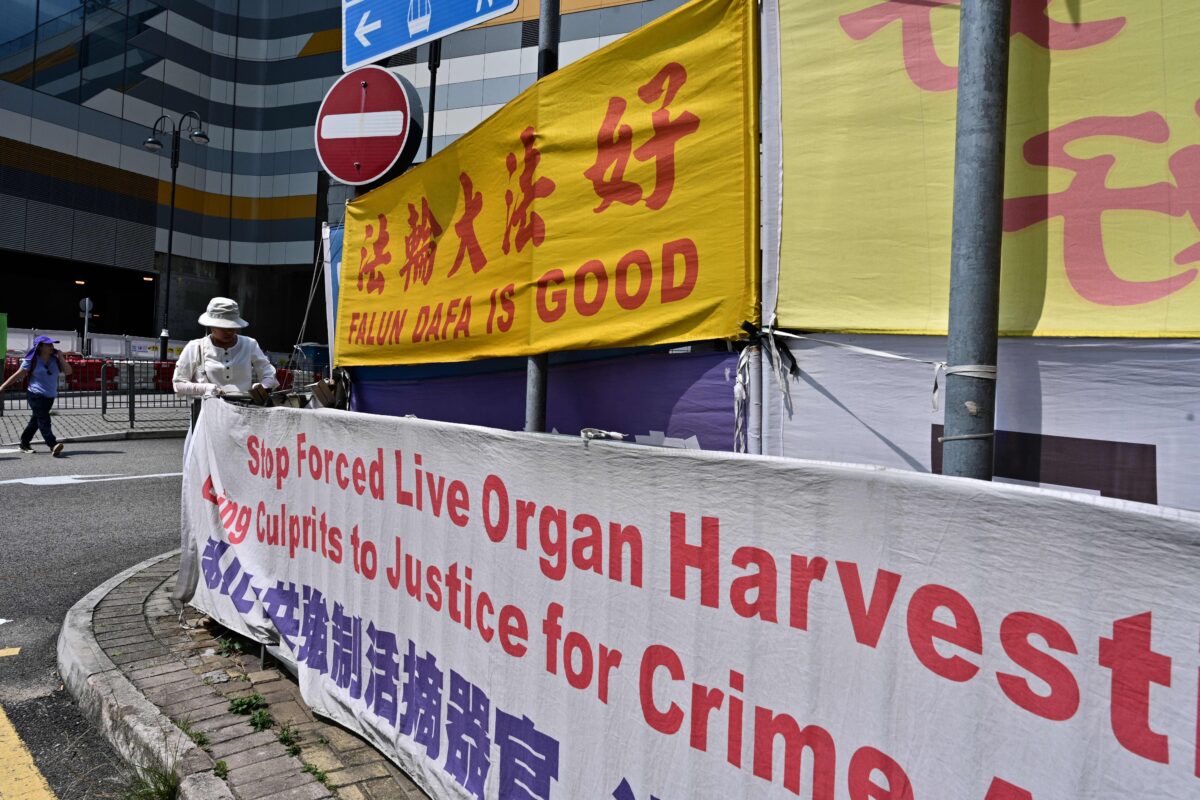
A Well-Oiled Machine
The process was quick—because fresh organs must be promptly transported to the hospital for surgery—and meticulous planning was key for it to run smoothly, Bob said.
“To them, it’s plenty clear which organ of a certain prisoner [they were going to harvest],” he said. “It was very explicit which [prisoner’s body] would be placed on the van … the people on the van knew exactly which organs to take because everything was arranged beforehand.”
From this, Bob surmised that these practices had been running for a long time before he started the job.
“The workflow, the adeptness they showed, and the closeness in their cooperation could not have happened in just one or two years,” he said. Even the price of the harvested organs was known beforehand, Bob added.
China performed its first human organ transplant in 1960. Since the country did not have an official organ donation system until 2015, most of the organs for transplant came from executed prisoners, the regime has claimed. But from the 2000s, the domestic transplant industry saw a sudden boom and the number of executed prisoners simply couldn’t account for the number of transplants taking place.
Chinese hospitals, seeking to entice organ transplant tourists from abroad, promised organ transplants in a matter of weeks or even days—unheard of in developed countries with established organ transplant systems where wait times could stretch on for years.
The surge in transplants coincided with the onset of the CCP’s persecution of Falun Gong, a meditation discipline whose 70 million to 100 million adherents have faced arrests, torture, and jail over the past two decades.
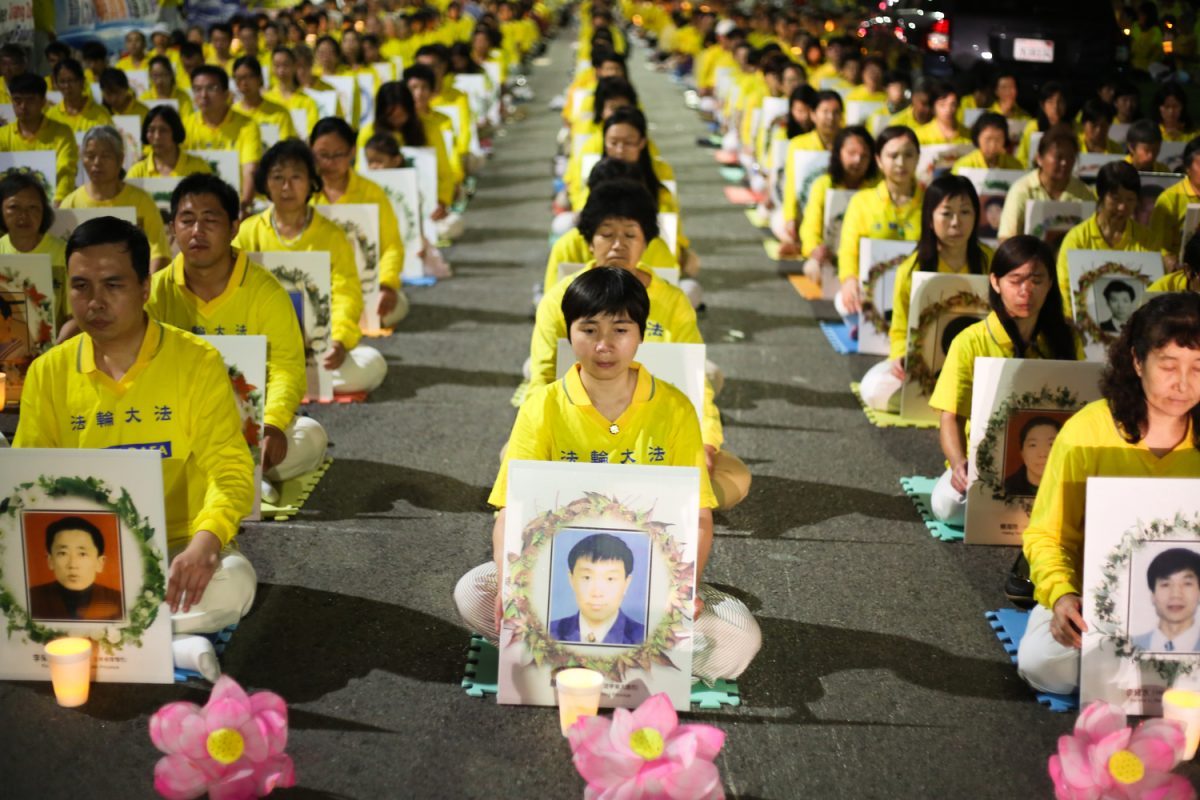
Over the years, evidence mounted pointing to a sprawling system of live organ harvesting from prisoners of conscience orchestrated by the CCP. In 2019, an independent people’s tribunal concluded that the regime, for years, was killing prisoners “on a significant scale” to supply its transplant market, and was continuing the practice. The main victims, the tribunal found, were imprisoned Falun Gong practitioners.
The regime said it banned the use of executed prisoners’ organs in 2015, claiming it would exclusively source from organs from voluntary donors under the organ donation system set up the same year. But still, official organ donation figures cannot explain the high number of transplants conducted, the tribunal concluded.
The Machine Keeps Running
Bob’s account aligns with those of multiple other eyewitnesses who took part in the opaque organ transplant business in China around the same period.
George Zheng, a former Chinese medical intern, recalled assisting in an organ removal operation in the 1990s alongside two nurses and three military doctors, in a mountainous area near an army prison close to Dalian, a city in northeastern China.
The patient, a young man, was unresponsive but his body was still warm. The doctors had removed two kidneys from the man and then instructed Zheng to extract his eyes.
“At that moment, his eyelids moved and he looked at me,” he told The Epoch Times in 2015. “There was sheer terror in his eyes … My mind went blank and my whole body began to shake.”
The memories of those two eyes haunted Zheng for years.
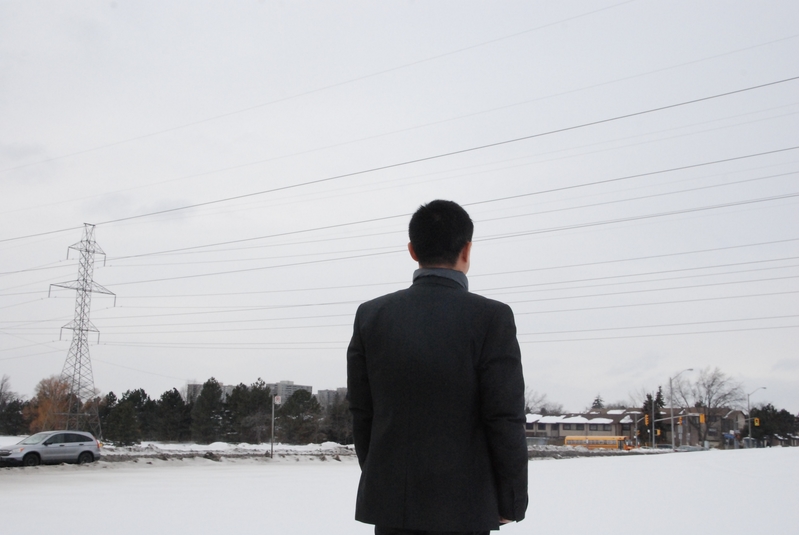
In 1995, ethnic Uyghur doctor Enver Tohti from the far west Xinjiang region similarly helped two chief surgeons to extract the liver and two kidneys from a live prisoner who had just been shot in the chest.
“There was bleeding. He was still alive. But I didn’t feel guilty. In fact, I didn’t feel anything but like a full-programmed robot doing its task,” he told a July 2017 panel. “I thought I was carrying out my duty to eliminate … the enemy of the state.” The surgeons later told him to remember that “nothing happened.”
A seemingly on-demand organ transplant trade appears to be continuing in recent years in hospitals in Zhengzhou, where Bob once worked, based on investigations by the World Organization to Investigate the Persecution of Falun Gong (WOIPFG), a U.S.-based nonprofit.
One nurse from the First Affiliated Hospital of Zhengzhou University told the WOIPFG in 2019 that their hospital ranked among the country’s top five in terms of kidney transplantation and did around 400 surgeries the previous year.
“We haven’t stopped since the Chinese New Year and haven’t taken any days off,” she told undercover WOIPFG investigators posing as prospective organ transplantees, adding that they had a kidney match that day.
Another doctor from the hospital, during a phone call in 2017, told undercover investigators they did most of the liver transplant surgeries overnight as soon as they arrived.
“If you don’t utilize these times and only do them during the daytime, how can you possibly do so many surgeries? How can you outcompete the other folks?” he said.
The organ transplant abuse Bob witnessed had sickened him and went against his values, which helped him make up his mind to quit less than three years into the job, he said.
Despite having long left the police force, Bob saw no reason that the forced organ transplant industry would stop running.
“Driven by the huge profits, there’s no place for the so-called human rights and humanitarian concerns,” he said.
Bob’s hope is for the Chinese population to free themselves from the Chinese regime’s authoritarian rule and find freedom in democratic countries.
By a twist of fate, the city committee secretary who ordered his detention ended up in jail himself for taking bribes. He later died in prison serving a life sentence.
“No one is safe under the CCP rule,” he said. “What happens to someone else may very well happen to you tomorrow.”


No comments:
Post a Comment